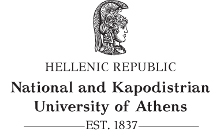Doctoral Dissertation in progress
«Civil servants’ evaluation. Recent reforms and new challenges»
Commencement date: May 28, 2024
Abstract
The rationalisation of our country's public sector is on the agenda of the structural reforms of the adjustment programs, directly linked to the disbursement of the loan installments. In particular, for the Greek Administration, the reform requirements have taken on 'big bang' and institution building characteristics, in terms of their range, intensity and ambition, while in the field of human resources the issues under review include the civil servants’ performance evaluation, career and selection system, as well as the de-politicization of senior staff. Specifically, personnel issues are a priority while the performance evaluation system for civil servants is now a reform requirement, having been a matter of concern for the scientific community and the governmental -administrative practice, especially in recent years, as it is an especially difficult process, through a continuous effort to eliminate elements of subjectivity and bias.
At the same time, it has been argued that, in reform initiatives taken on in Greece, limited importance seems to be given to implementation, which requires both going through proper preparation and ensuring the conditions for their success. The reform attempts are characterized by lack of continuity and political commitment, while the short-term horizon that is usually assigned, requires any reform either to produce immediate results or to falter. Administrative reform in Greece seems to be based on a “hit and miss” approach, without high correction capacity, failing to achieve its objectives and goals.
Similarly, the occasional attempts towards modernising and successfully implementing the evaluation process of human resources in the public sector have been fruitless, while at the same time new systems are legislated, overall suggesting the restoration of the former ones - even if with minor amendments - attempting to incorporate the New Public Management principles. In an overall assessment, the civil servants’ evaluation system seems to have undergone only insignificant changes, relative to the past experience, and its reform objectives have not been fulfilled so that there are no valid expectations towards an effective evaluation that would be a valuable tool assisting in human resources management. The strategy of decreasing the number of administration executive staff members led to a strong need for better use of the human resources available, as well as of their performance. Focusing on the continuous training, the education, the process of strengthening the relations between managers and employees, the productivity-based payment, etc. have been chosen among others and proposed as techniques that can lead to the achievement of this goal. Therefore, the evaluation systems are required to focus onperformance with emphasis on the behavioural predictability of the executive staff members.
The law 4940/2022 is an ambitious new reform effort regarding the civil servants’ performance evaluation, with the main component being the goal-setting. Although the implementation of the recentinstitutional framework is still at an early stage, gaps, shortcomings and ambiguities are already apparent, as well as a "haste" in its implementation, with the usual weaknesses in the procedures and implementation policies followed. Evaluation has been directly linked to and is considered a key priority and requirement, in the context of the country's commitments under the Memorandum, to enhance the efficiency and reorganization of the public administration, which is still suffering, in an effort to converge with European standards. The previous relevant legislations, which largely pursued the same goal, at least in their rhetoric, had limited implementation, with the result that no substantialconclusions can be drawn about the impact of the civil servants’ evaluation on the country's response to the specific objectives pursued.
The proposed thesis aims to carry out an in-depth study of the current regulatoryframework regarding the evaluation introduced by Law 4940/2022, and to critically analyze the results of its implementation, based on the principles of New Public Management and the particular characteristics of the Greek administrative system compared to relevantsystems in other countries. The characteristics (innovations) that differentiate the new project from the former oneswill be studied, the needs that it met or created will be assessed, and to what extent the new evaluation system serves the objective of increasing the efficiency and effectiveness of public administration, where the stakes are higher and the margins of error smaller.
